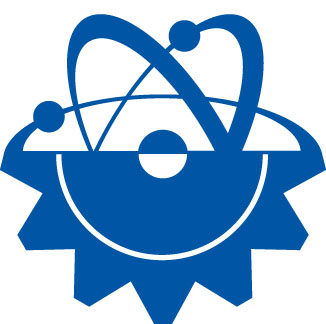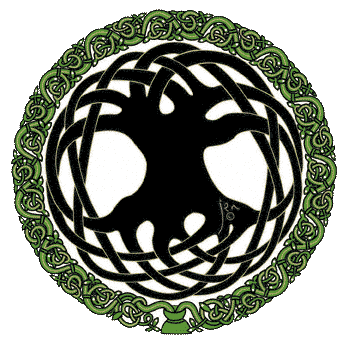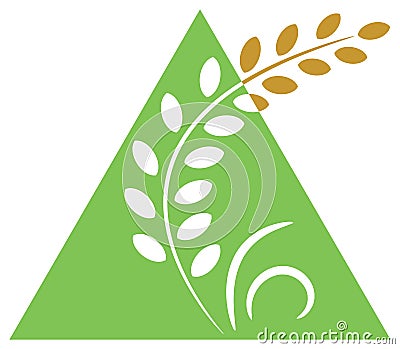In the same universe:
United Kingdom of Great Britain, Ireland, Guyana, and Gibraltar:
Constituencies
-House of Lords: 4 (IR), 7 (EN), 1 (WL), 10 (SC): total members: 100 from England, Scotland, Ireland, and 50 from Wales (350 total)
-House of Commons: 39 (EN), 32 (IR), 13 (WL), 34 (SC); total members: 803
Representation:
-EN: 605 (population is 45,378,551)
-SC: 71
-IR: 85
-WA: 41
Liberal Party (full name: Liberal Unionist Party)
-Ideology: classical liberalism (what Americans would call conservatism), Austrian Economics, pro-monarchy, pro-union, pro-constitutional rights, moderate internationalism
-History: Formed in the 1850s from the Whigs, Peelites, and Radicals in the 1850s, this party absorbed several Unionist parties over the years, and has advocated a strong national identity with reserved powers to the constituent countries (a more recent change to blunt the democratic parties that arose over the years, and the republicans). Today the party advocates almost-free trade, mostly with democratic nations like the US, Australia, Canada, New Zealand, Germany, France, the Scandinavian countries, and a few others, but tariffs on those countries which tried to flood the market (China, Japan, Thailand) with cheap goods made with slave labor; it advocates lowering taxes, including the income and wage taxes, and replacing the graduated tax with a flat tax, and elimination of the national sales tax as a drag on the economy.
-Accomplishments: Home Rule Bill of 1886 (devolved parliaments to Ireland, Wales, Scotland), Home Rule Bill of 1948 (devolved English parliament), Westminster Hall Bill (uses the larger Westminster Hall for the House of Commons) of 1949; Common Retirement Bill of 1961: expanded the Retirement Bill of 1948 to include non-military, providing separate retirement accounts for all from wages by a set-aside tax of 1% (now 6.3%) on every citizen so no person would have to live on the street or go hungry.
-HoC: 451
British Democratic Party
-Ideology: moderately mixed economy, moderate immigration from any former Imperial country, welfare and nationalized health care, internationalist: Centre Left
-History: emerging from the failed Labour, plus EDP and SDP members who left those parties, this is currently the minority party in Parliament. It advocates nationalizing health care in the UK, and establishing a Scandinavian welfare state. The current model of private retirement, health, and unemployment accounts that are only supplemented by the Treasury to help make up the difference in standard of living isn't enough for the BDP, even though this earns them plenty of criticism from the media as socialist and would cost too much. Held government for much of the 1990s, as well as off and on in the 50s and 60s, till the 'Immigration Troubles' in 1962, when the Liberals took over till 1992.
-Accomplishments: Supplemental Retirement Bill (1974): allowed Treasury funds to go to people to supplement their retirement accounts if people hadn't saved enough to give them the average income of the last 10 years of work for the rest of their lives, and to provide cost of living adjustments; Retirement Bill of 1948: provided returning soldiers from overseas pension accounts from their income that would be saved for retirement, health care, and unemployment. This bill was a compromise bill with the Liberals and several other parties, as the BDP wanted fully Treasury-funded retirement for all UK citizens.
-HoC: 259
Minority Parties:
Labour Union Party
-Ideology: pro-trade-union, mixed/regulated economy, pro-welfare state, is okay with immigration
-HoC: 5
British Trade Union Party
-Ideology: pro-trade-union, mixed/regulated economy, anti-immigration
Conservative Party
-Ideology: fiscal conservatism, pro-monarchy, pro-union, no devolved parliaments
-History: A strongly pro-union (i.e., pro-Westminster) party formed in the 19th century, advocating stronger powers for Westminster as opposed to devolution to the constituent countries, it also opposed the accession of British Guyana and Gibraltar into the UK. It held 1 government in the 19th century and since has never formed a government.
-HoC: 13
Liberal Democratic Party
-Ideology: centrist
-History: Formed in the 1940s as a mid-way between the liberals and several historic Democratic parties in the UK, this party has traditionally been an advocate of devolution, reduction in the powers of parliament and the monarchy, greater freedom for citizens and equality, and electoral reform. It formed 3 governments over the years, helping push the Liberal Party once and the BDP twice to a governing coalition.
-HoC: 12
Green Party
-Ideology: environmental protection nationwide
-History: Formed in the 1950s due to the post-war suburb boom and the rise in smog in the cities, the party began advocating for a Clean Air Bill, which eventually passed in 1967
-Accomplishments: Clean Air Bill of 1967; Industrial Smog and Waste Cleanup Bill of 1969 (cleaned up smokestack exhaust and city smog, and introduced car exhaust standards)
-HoC: 1
Irish Catholic Party
-Ideology: Christian Democracy, pro-union, pro-monarchy, pro-Catholic values (anti-abortion, etc)
-History: After the Protestant Revolution and the English colonization, the Catholic Church in Ireland descended for centuries till it was maybe 24% of the population due to the Gunpowder Plot and the English and Irish Civil Wars. It has since recovered to about 31%, but it doesn't have much vitality. Its greatest appeal is tradition in Ireland, but the Irish Protestants remain a vibrant majority.
Democratic Unionist Party
-Country: Ireland
-Ideology: classical liberalism, pro-union, pro-monarchy
-History: Formed in 1964 in Ireland from members of the Liberal, Unionist, and Democrat Parties to increases the devolution of powers to Ireland.
Fine Gael
-Country: Ireland
-Ideology: Irish culture and language, pro-union, Christian Democracy, Liberal Conservatism (here defined as economic liberalism, Austrian school, capitalism, free markets, political liberty, plus cultural conservatism, preserving older cultural values against 'cultural rot')
-Accomplishments: re-introduction of Irish language schooling in 1896, courts in 1913, and in government in 1920.
Fianna Fáil
-Ideology: Irish Republicanism, anti-union, anti-monarchy
-History: Formed in 1870 to urge separation from the UK, things kind of petered out with the Home Rule bill, and the continual devolution of power, but they still want separation from England and to set up an Irish Republic.
-HoC: 4
Scottish National Party
-Ideology: Scottish culture, Scots Gaelic and Scots language rights
-History: After home rule, the SNP formed as a party advocating for the Scottish languages and culture, preserving it against melting together with the English, but advocating union in the UK as necessary to the Scottish economy and freedoms.
-Accomplishments: Scottish Gaelic Language Bill of 1889 (allowed use of Scots Gaelic in schooling); Scots Gaelic Radio and Broadcasting Bill of 1964 (created BBC Scotland; provided for both Scots and Gàidhlig in radio and TV); Scots Gaelic Commission Bill of 1956 (created the Scots Gaelic Language Board (Gàidhlig cànan Coimisean) to regulate the language and promote its use)
-HoC: 13
Irish National Party
-Ideology: Irish Culture, language, devolution, protestantism
-History: Formed in 1910 to advocate for greater home rule and an Irish cultural revival, the party is strongly pro-union and Protestant. Members did lead to the Reformation of the Church in Ireland in the 1920s, bringing the church more in-line with 'mainstream' Protestantism, and away from Anglicanism. Supports the monarchy and union with England, but recognition of Irish language and culture
-Accomplishments: Irish Schools Bill of 1889 (created and allowed Irish language schools; accomplishment of the Irish Unionist Party); Irish Courts and Government Bill of 1919 (allowed use of Irish in courts and government, devolved language policy to Ireland); Irish Commerce Bill of 1923 (Ireland only; requires businesses to put up signage in Irish and have Irish speakers available; this lead to a reverse in the decline of Irish from a low of 140,000 in 1910 to its current 2.9 million, mainly in the west and south).
-HoC: 11
Welsh National Party - Plaid Cymru
-Ideology: Welsh Culture, Welsh language rights, devolution; pro-union
-Founded: In 1886 as the Welsh Union Party, renamed Welsh National Party in 1953
-History: Founded in support of Union with the UK in 1886 after Home Rule and its very limited devolution, this party advocated a revival of the Welsh language and celebration of its culture. It is more strongly represented in the Welsh Parliament.
-Accomplishments: Welsh Education Act of 1887 (allowed schooling in Wales in Welsh); Welsh Language Bill of 1977 (established right of schooling in Welsh so that over 80% of children are taught in Welsh-only, use in courts and with local government, radio, and Welsh Language Commission); Welsh Television Bill of 1964 (established BBC Cymru to create programs in English and Welsh); amended WTVB 1983 (amended prior bill to require Welsh dubbing for BBC 1-4 programs and subtitles for all programs aired in Wales)
-HoC: 10
Mebyon Kernow (The Party for Cornwall)
-Ideology: Centrist politically, Cornish linguistic rights, devolution
-History: Formed in 1951, this party advocates devolution and a Cornish Parliament.
-Accomplishments: Cornish Language Rights Bill of 1973 (allowed use of Cornish language in schools in Cornwall); Cornish Courts and Government Bill of 1991 (allowed use of Cornish in court and in dealings with local government without charge); Cornish Language Bill of 1980 (established funding for a unified Cornish orthography, dictionary, and Cornish Language Council (Cussel an Tavas Kernuak) to promote Cornish language within Cornwall); Cornish Media and Broadcasting Bill of 1987 (established subtitling in Cornish for all BBC shows, establishment of Cornish language radio station); CMBB of 2001 (established funds for dubbing BBC programs into Cornish; mandated all shows broadcast in Cornwall have at least subtitles in Cornish; most shows and movies have Cornish dubbing and subtitles)
-HoC: 1
British National Party
-Ideology: anti-immigration, pro-life, Christian values, pro-union
-History: formed from a merger of several parties formed in the 1960s, the BNP threatened the Liberal/BDP government until the Immigration Bill of 1964 was passed, limiting immigration from countries of the Commonwealth aside from Australia, New Zealand, and Canada except for those having a college degree in technical or medical areas. After the airline hijacking of 1966, when a member of the royal family was killed, immigration from the Middle East, aside from Israel was cut off until 2006. It supports the Christian tradition of the UK with appeals to history and tradition, successfully keeping religion a subject in the schools of the UK. Strongly pro-monarchy and pro-tradition, the BNP also successfully stopped the far-left 'multiculturalist' trend from gaining steam as anti-British and detrimental to the unique historic traditions of Great Britain and Ireland by reducing them to equal status to unfree corrupt countries, with the stance that the UK is freer, more democratic, and has done more for the world than any third world country, so its culture is inherently superior.
-HoC: 23
Note: The national parties have independence party counterparts that advocate independence from the UK, but none of them have representation in the UK Parliament
Note: Each country has a specific 'Christian Party' (Irish Christian Party, etc) advocating for Christian education, home schooling, tradition, pro-monarchy, pro-union policies.
Historic Parties:
Labour Party
-Ideology: pro-labour-union, mixed/regulated economy, (formerly) Democratic Socialism
-History: Emerged out of trade union and socialist parties in the 19th century, but their willingness to embrace socialism and democratic socialism tainted the party nationally after WW2 as being sympathetic to the enemy in the European mainland. Labour interests have since been represented in the Union Labour Party.
-Dissolved: 1944
English Democrats
-Ideology: devolved English Parliament, constitutional, written limits to English and national Parliaments' powers
-History: After the troubles in the 1840s, the English Democrats grew in Parliament, along with Irish, Scottish, and Welsh Democrats until things came to a head in 1886 with the Home Rule Bill establishing devolved parliaments for each country. The party dissolved by 1890 when the devolved parliaments came into effect. Later parties continued in the same vain till the devolved parliaments had roughly equal powers in education, health, local government, agriculture, fishing, culture, media, forestry, sport, and natural resources.
-Accomplishments: Redistribution of Seats Act of 1885 (set Parliament to 1 MP per county in each constituent country, and 1 for every 75,000 people in that county)
Unionist Party
-Ideology: British Unionism (support of staying in UK), parliament-ism and federalism (support for parliamentary authority in specific, named areas of law)
-Countries: Ireland, Scotland, Wales, Guyana, England
-History: Merged into the Liberal Party in the 1920s, split in 1886 due to the Home Rule Bill, members mostly in Ireland, Wales, and Scotland advocating continued union with England as opposed to the Republican parties that soon formed, advocating for independence.
-HoC: 0 (part of the Liberal Party)
Scottish Independence Party
-Ideology: Scottish Nationalism, Euro-centric
-history: founded in 1886, disbanded in 1948




